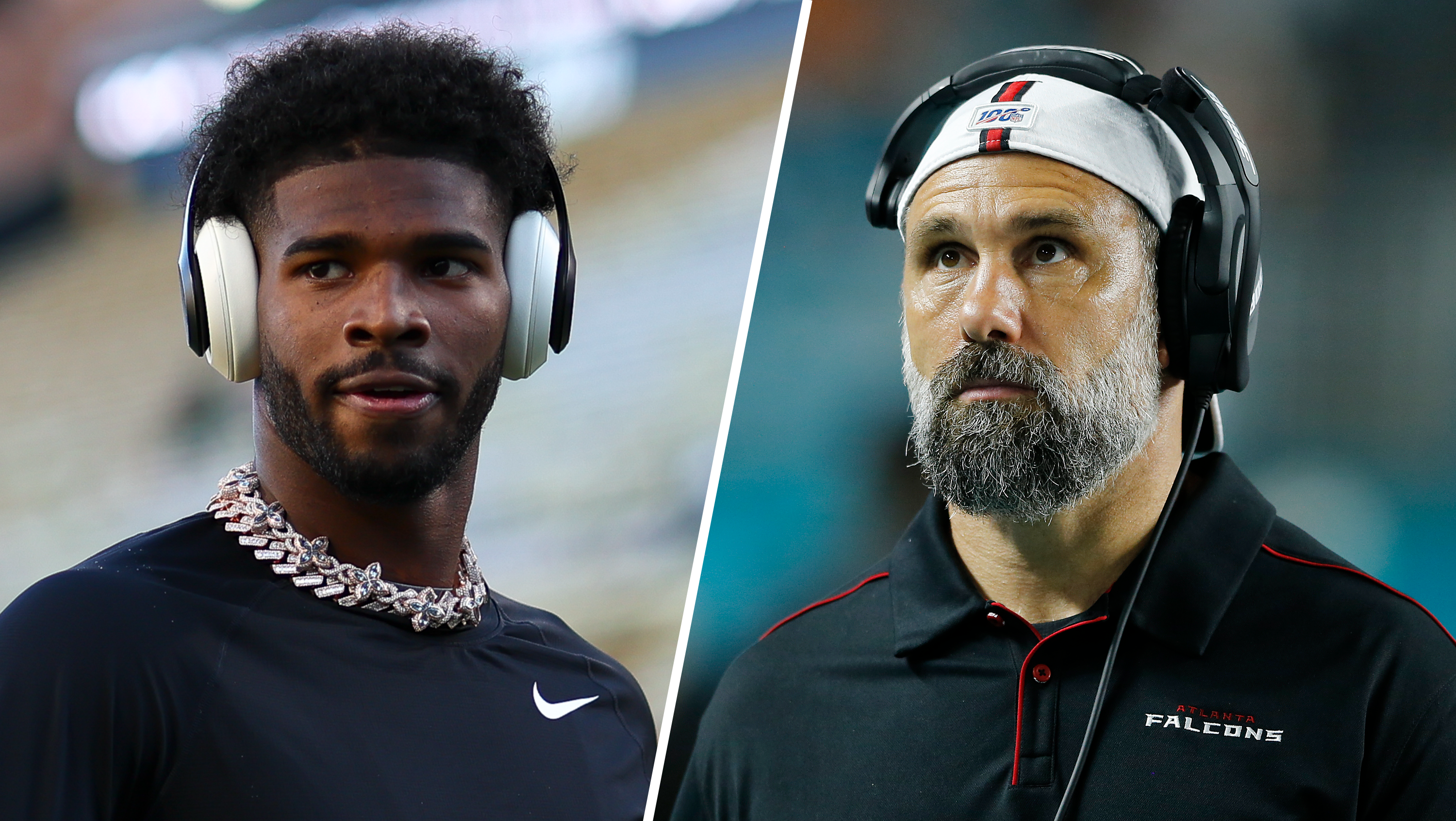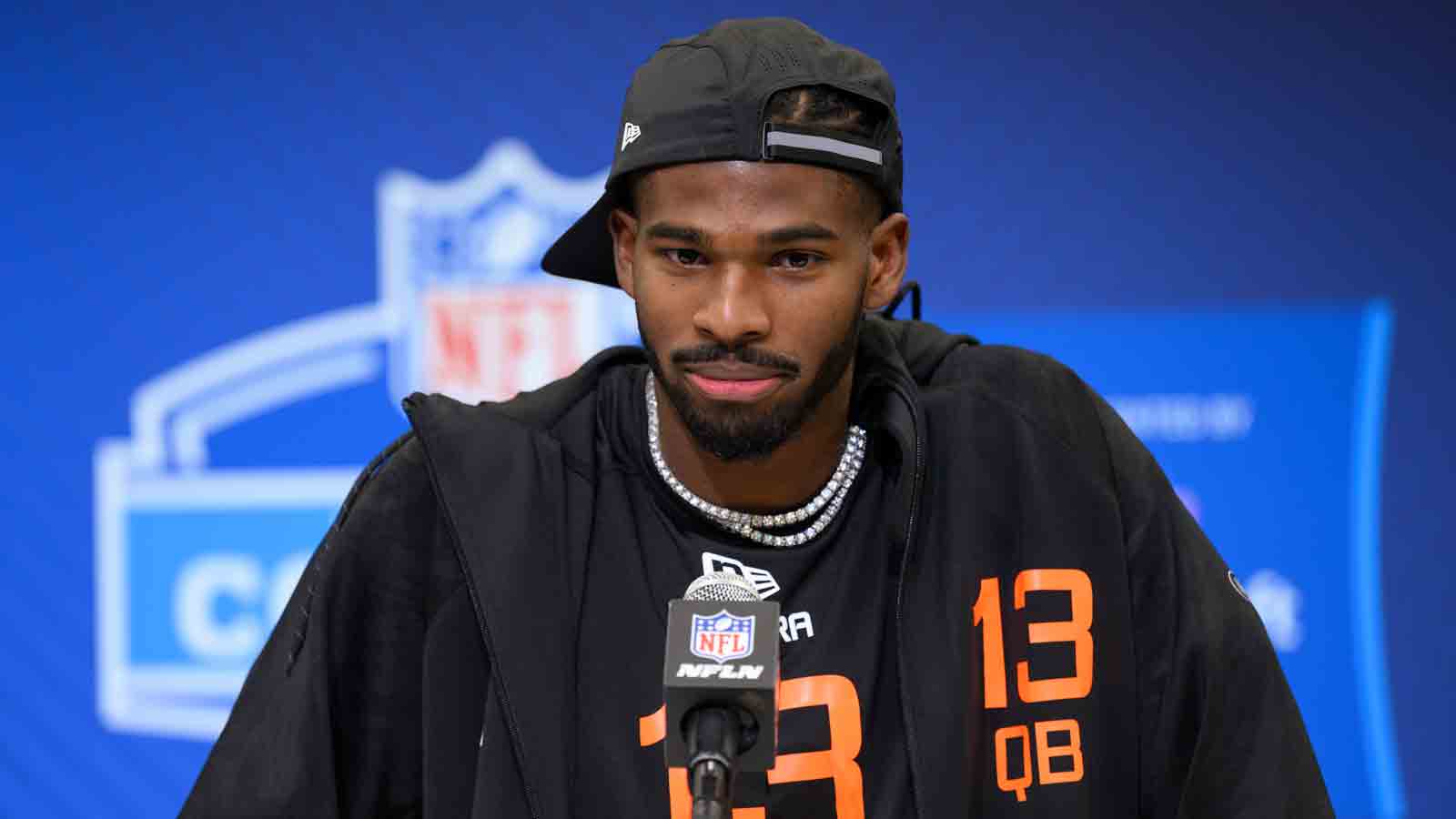NFL Fines Falcons: Shedeur Sanders Leak Costs $350K
Falcons Grounded: NFL Fines Team and Coach Over Shedeur Sanders Leak
Introduction: A Draft Day Disaster
The NFL draft is supposed to be a time of excitement, dreams realized, and new beginnings. But for the Atlanta Falcons and defensive coordinator Jeff Ulbrich, the 2024 draft will be remembered for a different reason: a major fumble. The league has dropped the hammer, fining the Falcons a hefty $250,000 and Ulbrich himself $100,000. But what exactly happened? It all boils down to a leaked phone number and a prank gone horribly wrong involving none other than Shedeur Sanders.
The Leak: How Shedeur's Number Got Out
So, how did Sanders' private contact information end up in the wrong hands? The answer is surprisingly simple, and a little embarrassing. Ulbrich's 21-year-old son, Jax, apparently swiped Sanders' phone number from his father's iPad. Yes, you read that right. A parental security setting might have saved a quarter of a million dollars here.
The Prank Call: Mickey Loomis Impersonated
Armed with Sanders' number, Jax Ulbrich decided to pull a prank. A pretty misguided prank, to say the least. He impersonated New Orleans Saints general manager Mickey Loomis and called Sanders, leading him to believe he was being drafted by the Saints. Can you imagine the roller coaster of emotions Sanders must have experienced?
Shedeur's Draft Journey: From Prank Target to Cleveland Brown
Despite the ill-conceived prank, Shedeur Sanders' NFL dream did come true. He was eventually drafted by the Cleveland Browns in the fifth round. Talk about a silver lining! But the story doesn't end there; the NFL wasn't about to let this incident slide.
The NFL's Verdict: Confidentiality Breach
The NFL's official statement was clear: the fines were imposed for "failing to prevent the disclosure of confidential information distributed to the club in advance of the NFL Draft." In other words, the Falcons and Ulbrich failed to protect sensitive information. The league takes these breaches very seriously, and the fines reflect that.
The Falcons' Apology: Accepting Responsibility
The Falcons, to their credit, accepted the NFL's punishment and released a statement acknowledging their mistake. "We appreciate the NFL's swift and..." (the statement was truncated in the original source, suggesting a desire to quickly move past the issue).
Ulbrich's Responsibility: A Coach's Duty
Protecting Confidential Information
As a defensive coordinator, Ulbrich is responsible not only for his team's performance on the field but also for maintaining a professional environment. This includes safeguarding confidential information. The fact that the leak originated from his personal device underscores the severity of the breach.
Setting an Example
Coaches are role models for their players and, in some ways, their families. This incident highlights the importance of responsible digital citizenship and the potential consequences of even seemingly harmless pranks.
The Impact on Shedeur Sanders: A Distraction He Didn't Need
Pre-Draft Jitters Amplified
The pre-draft period is already incredibly stressful for prospects like Sanders. The prank call undoubtedly added unnecessary pressure and uncertainty to an already anxious time.
Maintaining Focus
Despite the distraction, Sanders managed to maintain his focus and ultimately achieve his goal of being drafted. This speaks to his resilience and determination.
NFL Draft Security: A Wake-Up Call?
This incident raises questions about the security protocols surrounding the NFL draft. Is enough being done to protect sensitive information? Perhaps this will serve as a wake-up call for teams to tighten their security measures and educate their personnel about the importance of confidentiality.
Prank Calls: Where's the Line?
Harmless Fun or Harmful Behavior?
Prank calls can range from lighthearted fun to outright harassment. In this case, the prank call crossed the line due to its potential to negatively impact Sanders' draft prospects and the unauthorized use of confidential information.
Consequences of Actions
This situation highlights the importance of considering the potential consequences of our actions, especially in the digital age. A moment of impulsivity can have serious repercussions, as Jax Ulbrich and the Falcons organization are now learning.
The Financial Penalties: A Breakdown
$250,000 Fine for the Falcons
A quarter of a million dollars is a significant penalty for any organization. This fine sends a clear message that the NFL will not tolerate breaches of confidentiality, regardless of intent.
$100,000 Fine for Jeff Ulbrich
Ulbrich's $100,000 fine underscores his personal responsibility for the incident. As a coach, he is expected to uphold the highest standards of professionalism and protect sensitive information.
The Wider Implications: Trust and Confidentiality in the NFL
The NFL is built on trust and confidentiality. Teams need to be able to share sensitive information with the league and with each other without fear of leaks. This incident undermines that trust and could have a chilling effect on future information sharing.
Moving Forward: Lessons Learned and Future Safeguards
Hopefully, this incident will serve as a learning experience for everyone involved. The Falcons will undoubtedly review their security protocols and implement new safeguards to prevent similar breaches in the future. And Jax Ulbrich will hopefully think twice before pulling another prank.
Conclusion: A Costly Mistake and a Lesson Learned
The NFL's fines against the Falcons and Jeff Ulbrich over the Shedeur Sanders phone number leak highlight the importance of data security and responsible behavior, especially in the high-stakes world of professional football. This costly mistake serves as a reminder that even seemingly harmless pranks can have serious consequences, impacting individuals, teams, and the integrity of the league itself. The Falcons and Ulbrich have accepted responsibility, but the incident leaves a lasting mark on the 2024 draft.
Frequently Asked Questions (FAQs)
- Q: What exactly did Jax Ulbrich do?
- A: Jax Ulbrich, Jeff Ulbrich's son, took Shedeur Sanders' phone number from his father's iPad and used it to prank call Sanders, impersonating New Orleans Saints GM Mickey Loomis.
- Q: Why were the Falcons fined by the NFL?
- A: The Falcons were fined for failing to prevent the disclosure of confidential information (Shedeur Sanders' phone number) that was distributed to the team in advance of the NFL Draft.
- Q: How much were the Falcons and Jeff Ulbrich fined?
- A: The Atlanta Falcons were fined $250,000, and defensive coordinator Jeff Ulbrich was fined $100,000.
- Q: Did Shedeur Sanders still get drafted after the prank call?
- A: Yes, Shedeur Sanders was drafted by the Cleveland Browns in the fifth round despite the prank call incident.
- Q: What is the NFL doing to prevent similar incidents in the future?
- A: While the NFL hasn't publicly announced specific changes, this incident will likely prompt teams to review and strengthen their data security protocols and educate personnel about the importance of confidentiality.

